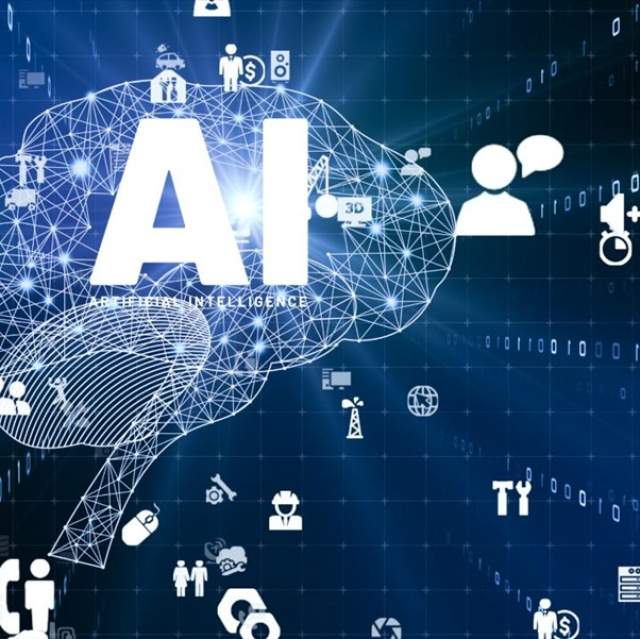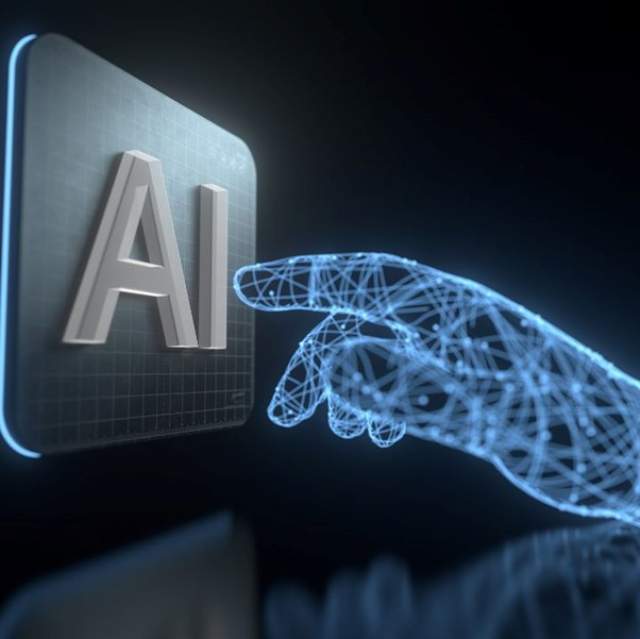The Impact of AI on the voiceover industry and voice-over rates

Are you looking for a professional voiceover? If so, you might find yourself torn between two options: choosing a low-cost AI-generated voice, or opting for a professional voiceover agency.
Whatever choice you make, it’s crucial to weigh your options carefully. Because ask yourself this: Why are AI voices so inexpensive, and what benefits do they offer? Why do professional voice actors remain the preferred choice for major companies? What are the risks associated with AI?
In this blog post, you'll find answers to all these questions. Do you wish to find out all about the world of professional voiceovers? If so, keep reading to learn more.
This article in 30 seconds
-
The world grows and advances at a rapid speed. Especially within the world of film, animation, and marketing. Where men used to work together, we now collaborate with AI.
-
Within the voiceover world, choosing AI has certain benefits and negative side effects. Working with AI is faster and less of an investment, but it’s also less qualitatively strong.
-
There are certain important disadvantages to using AI-generated voiceovers:
-
AI does not have emotions. Therefore, it will lack emotional depth and connection.
-
It’s also not creative, and it can’t improvise.
-
Artificial Intelligence is taking human jobs.
-
Voiceovers created by AI lack communication and impact.
-
-
Because human voiceovers do not require traditional recording sessions, it’s cheaper. But it does not only save you money with their minimum rates, it also reduces the quality of the final product.
-
AI might seem cheaper, it might not be so in the end. Most AI platforms require you to pay annually, or pay a higher fee per month. If you pay per year, you get certain credits per month. You do not get an hourly rate, but are capped. Do you need more? Then you pay more. Stack it all, and you’ll end up with a much higher amount than you first expected.
-
Voice actors do not reduce their voice-over rates due to competition. This is because AI is not an actual competitor. AI produces voice-overs of such low quality, that big companies will always feel like using actual voice talents. Even if their voice-over rates are slightly higher.
-
Some voice actors choose to collaborate with AI. However, they need to find a certain balance to keep the quality of their voiceovers high.
-
Voiceovers lack certain abilities, like incorporating accents and dialogues in your voiceover. Do you require a certain voice for your project? Choose human voice acting, or risk your company being considered stereotypical or even racist.
The rise of AI-generated voices
With an eye on the future, we are always focused on modernization and technological growth. Especially in the world of film, animation, and marketing, we’re constantly moving forward. Where projects once required collaboration between multiple companies, we now have AI. Artificial Intelligence allows projects to be completed faster and with fewer people working on a single task. This is an appealing prospect when the alternative requires significant investment.
But is it worth choosing quantity over quality? AI-generated content isn’t always of high quality. Yes, the content is produced quickly. There are no delays, as AI never sleeps and is always ready. But ask yourself this: is the content actually good?
AI bases its knowledge on information found online—blog posts and articles written by people, or perhaps even by other AI. New content is created based on this information. The voice-over industry is also experiencing a significant rise in AI usage, with many companies opting for the cheaper solution over the quality choice.
Because what are the disadvantages of using AI-generated voiceovers?
-
Think about quality and authenticity
-
Creativity and improvisation of AI
-
Ethical considerations
-
Is there long-term value?

The quality and authenticity of your voice-over
You've made a commercial shot, the scene has already been filmed and all you need is the voice-over. Now you have two choices: you grab a cheap AI program for a quick solution, or you look for an actual voice actor. A human voice talent, who records your assignment the way you really want it.
When making the choice, it is important that you know what you are actually choosing between. Yes, AI is fast. But it often lacks subtle nuances and emotional depth.
People do not connect to AI
Whether consciously or subconsciously: people do not feel connected to AI. The intonation is just not right because AI does not use the correct punctuation. Or maybe it is an emotional connection that is missing. AI does not have emotions. It knows what enthusiasm is at a basic level, but AI cannot really feel it. So it will always just miss the mark.
People are creative and can improvise
Because Artificial Intelligence works based on patterns and existing data, it cannot think creatively. You can ask a bot to come up with something creative, but it will always be based on existing work. Do you have a voice-over project that requires spontaneous adjustments, or a creative brain? Then Artificial Intelligence is not a suitable solution for you. Only human voice-overs offer you these options. That is what should be an important realization for clients who have to make this choice. Do we go for cheap, fast AI? Or is it important that the listener feels connected to my content and my voice-over?
The rise of AI raises ethical questions
Artificial Intelligence is having an impact on the world. Not just in the voice-over industry, but in all industries. Employees are being laid off en masse and entire companies are switching to AI. This is creating huge ethical dilemmas.
Do we want programs to take over the work of creative talents? Do we really want the human influence on this creative work to decrease? Before you know it, AI will be the only way to enjoy creative work. Not only with voice-overs but also with texts, books, and even art.
Additionally, synthetic AI voices can also be misused. For example, consider scammers who make phone calls using a fake voice, convincing people that they are speaking with someone they know.

More and more companies are banning AI voices
It is becoming increasingly common for companies to prohibit the use of AI voices. This is due to not only significant legal questions but also ethical dilemmas.
Take, for example, this case in China. A voice actress won a lawsuit because her voice was used without permission by AI to create audiobooks. The court ruled that your voice is a personal right, similar to the right to an image. The company that created the AI had to pay damages and offer their apologies.
There’s also the case of the famous actress Scarlett Johansson. In early 2024, ChatGPT released an AI-generated voice that the actress claimed sounded suspiciously like her own. After she publicly expressed her concerns, OpenAI immediately modified the voice. This incident cost ChatGPT a significant amount of money.
The long-term value of human voice-overs
Nevertheless, AI is alluring. Especially for small companies that do not have large budgets for their voice-over projects. When a voice-over is needed as quickly and cheaply as possible, AI is often chosen for its short-term benefits.
However, human voice-overs provide greater value in the long term. Human voices ensure better communication with your audience. This delivers more impact and loyalty than Artificial Intelligence will ever be able to deliver.
The influence of AI on voice-overs
The rise of AI brings many changes with it. Human voice-over talents have to adapt due to the rapid technological developments. This has an impact on the entire process of voice-over creation.
For example, many voice-overs are now created digitally. Traditional recording sessions with a human actor are no longer necessary. This reduces the production cost and the session fee, but also reduces quality. Human actors offer a flexibility that AI cannot offer. People easily adjust nuances, or improvise based on the director's instructions.
The quality of raw audio is also changing. AI lacks the subtleties that make human voices unique. Take emotional depth and intonations, for example. The result? The end product is not as convincing as it should be. As a result of thát, the developer loses a lot of revenue. Not to mention the loss of a potentially loyal customer base.
Therefore, it's not always the right decision to go for AI. Even when they do not have an hourly rate, or request production fees. It's important to choose for the finished audio with the best quality. And AI can't compete with the professionality of proper voice acting.

AI also affects the final quality of the audio
In addition to the ethical and emotional aspects of AI, it also has audible effects on the voice-over industry. The final quality of audio produced by AI is lower than that created by humans. Because of this lower quality, people are less willing to pay for it. Take, for example, usage fees—the fees paid for the use of audio. Or the session fee. A company will be less inclined to pay high amounts for AI-generated voiceovers, as it's finished audio is less unique and, therefore, less valuable.
Impact of AI on Voice-over Rates
AI voiceovers are usually cheaper than human voiceovers. That's for sure. There's no human effort required, no recording fees, and (often) no licensing fees or royalties to AI.
Because AI doesn't need people to create its content, it costs less. Some AI voiceover platforms already offer subscriptions for just a few euros (or dollars) per month. This can be attractive if you don't have high expectations for your final product.
Examples of voice-over rates
The prices of voiceovers vary greatly. Not only between platforms, but also the difference between AI and human voiceovers is very big.
Take a voiceover for e-learning for example. Suppose you want to have an e-learning recorded. You don't know yet whether you would like to use a human voiceover or AI. As soon as you start comparing the costs, you will quickly see a clear difference.
Because, while you can use voice-over platforms that offer voice-overs from €12 per month, having an e-learning recorded by a human voice talent costs at least €250 for an e-learning of 500 words.
What you do have to consider, is that voice-over platforms often ask for annual payments immediately. You think that a voice-over only costs €12 per month, but you pay for the entire year immediately. That is €144. Does an AI platform offer monthly payments? Then the prices are also much higher.
In addition, AI programs often work with credits. You receive a certain number of credits per month. These credits are, for example, enough for an hour of voice-over material per month. Do you want more credits? Then you pay more. Before you know it, you are at the same amount, for a less qualitative final product
A voice talent considers word count and multiple jobs during the same session
But, what about the costs of a human voice-over? Take for example the costs of this English-speaking voice actor from VoiceProductions. Let's take a look at his e-learning voice-over rates. This is a rate that's based on total word count.
How many words does your voice-over project have? For the first word count up to 500, you pay this specific voice actor an average of around €250,-. Is the e-learning's total word count longer? Then the rate is reduced. For a word count of up to 1000 words, you pay €330,- and for 3000 words, €650,-. The amount is therefore not cumulative, but it adapts to the total word count.
Other than that, voice actors also adjust their rates when you request more assignments in the same session. AI does not reduce their rates because they work the way they work. They aren't flexible like humans are.
So weighing the costs and benefits is essential.
How human voice-actors adapt to the technological shift
Where people expect human voice-overs to adapt to the competition (and thus become cheaper), they are not always right. Yes, the competition (AI) offers its voice-overs much cheaper. But that does not mean that the value of human voice-overs has decreased. The high quality of human voice-over services remains the same. With countless advantages over Artificial Intelligence, human voice talents remain superior.
That is why actors do not always lower their voice-over rates. In some cases, the amounts even increase because daily provisions still have to be taken care of. Fewer assignments mean a higher asking price. In this respect, the rise of AI is not at all favorable for the buyer or manager of a voice-over project.

Collaboration between man and machine
However, this does not apply to every voice talent. Some voice actors choose to collaborate with AI. With the help of technological developments, they can improve their voice-over services. This way, they work faster and can charge lower amounts.
Of course, the balance between man and machine must be carefully considered. Where the voice actor can (and certainly may) use the technological changes, he or she must also be careful. Relying too much on AI ensures that the product is no longer qualitatively strong. The balance is difficult to find, but once the voice actor has found it, each party can enjoy the collaboration. So there are all kinds of factors to consider.
Fortunately, people and AI don’t have to be absolute competitors. For example, imagine sending demos of your AI voice, allowing the client to pay extra for your real voice afterward. This way, you can work quickly, effectively, and affordably with AI, without compromising the quality of the final product.
AI vs. human voices, what to consider?
So there are all kinds of factors to consider. Not only the desired effect of your project, or the costs. But also the intention behind it. That is why it is important to look carefully at the core of your company and the assignment. Do you have a short, simple project? Think for example of a social media post, or an internal training video. Then AI can be quite effective for you. It is fast, cheap, and you do not necessarily need an emotional connection between the listener and the speaker.
But, do you have a project where that emotional connection is important? Think of an audiobook, or commercial. Then the human voice-over is the best choice. Human voices bring nuances and they convey emotions. This is essential to be able to convey your message effectively. Is the personal touch and authenticity central to your project? Then you simply need a human voice-over.
Long term costs and licensing
As mentioned earlier, it's important to consider your desired outcome. Are you looking for something short-term, or do you want to make a long-term impact? While AI doesn’t involve licensing fees, the end product is also less personal and effective.
For long-term projects like commercials or audiobooks, human voices add more value. The one-time licensing fees and usage rights you pay are an investment in quality and authenticity. Your goal is to create a great customer experience, which ultimately pays off—not only in customer loyalty but also in the reputation of your company.
You're paying for the rights you need
Imagine this scenario: you hire a seasoned voice actor for your skincare company's commercial. The ad becomes a hit, and business is booming. Then suddenly, you hear a similar commercial on the radio with the exact same voice!
This scenario won’t happen when you work with a professional voiceover company like VoiceProductions. When you collaborate with a voice actor, they agree not to take on similar projects for a competitor during a specified period of time. At that time, you own the rights to the voice, which is why you pay a bit more.
Are you using AI? Then the AI voice is accessible to everyone, and you can’t claim it. If a competitor wants to leverage and use your popularity, they can do so. With AI, you’re not paying for rights that work in your favor.

Don't forget accents and dialects
While AI works quickly and efficiently, it also has its technical limitations. Consider, for example, the accents and dialects of voice actors. Take African American accents or Asian American voices as examples. Certain accents within Europe and Africa are also difficult for AI to replicate.
The right tone of voice and accent have a significant impact—not only on your company’s image but also on the message you convey to your customers. If you're selling a product from France, you might want a voice actor with a French accent. If you use AI for this, it can easily come across as insincere or even offensive. The same applies to other voice-over projects, like e-learning. If you plan to engage different ethnic groups in your e-learning content, using AI-generated voices can quickly sound stereotypical. For example, if you have an Asian employee featured, you’ll want an authentic voice, not a stereotyped version created by AI.
Conclusion
The impact of AI on the voice-over industry is significant. It raises important questions about the quality, ethics, and authenticity of voiceover work. While AI-generated content may seem cheaper and can be quickly produced, it lacks the nuances, emotional depth, and creativity that human voiceovers provide. Does your project require a personal touch, or is an emotional connection crucial? Then a human voice is the right choice.
Choose quality and authenticity with a human voice-over from VoiceProductions. Create impact and build loyalty with the power of a real voice. Discover what our professional voice-over services can do for your project!